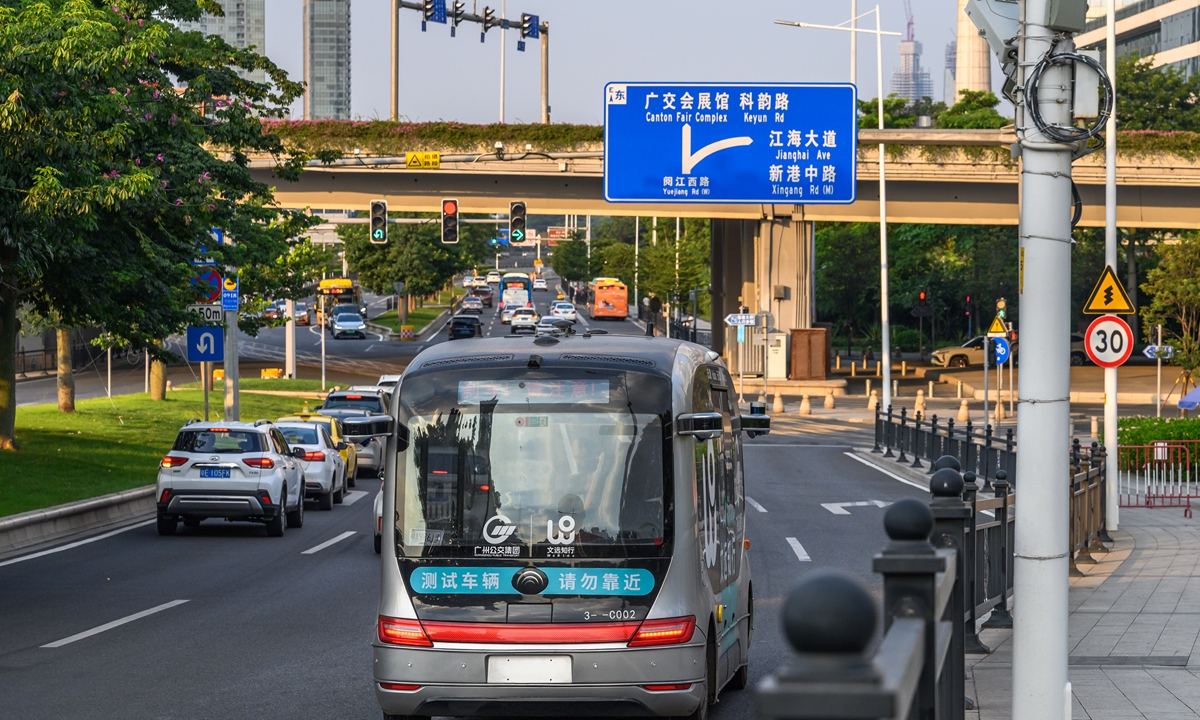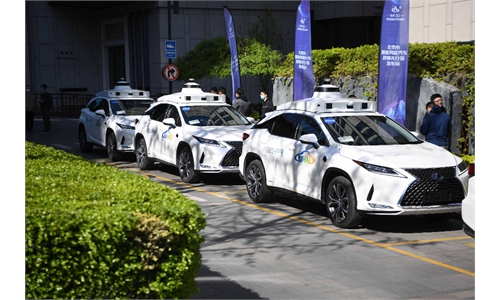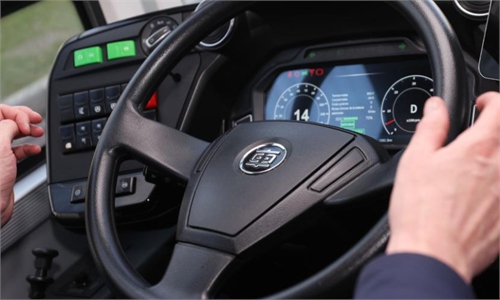US lawmakers raise concerns over Chinese self-driving testing data collection as ‘another excuse to suppress China’

A self-driving bus is tested in the city center of Guangzhou, South China’s Guangdong Province on July 26, 2022. Photo: VCG
A group of US lawmakers is targeting Chinese self-driving companies and raising alarms about Chinese companies collecting and handling the so-called sensitive data while testing autonomous vehicles in the US. This marks another excuse to contain China's technological rise, citing so-called national security concerns, experts said.
The lawmakers asked 10 Chinese-related companies, including Baidu, Nio, Didi Chuxing and Xpeng to respond to questions by November 29 on data collection practices from ongoing autonomous vehicle testing in California and elsewhere, Reuters reported on Thursday, citing letters signed by the lawmakers.
The letters said the companies "collect sensitive information about our citizens and their daily routines, the nation's infrastructure, and connected technologies," Reuters reported.
The concerns from the US lawmakers are over exaggerated and baseless, Zhang Xiang, president of New Energy Vehicle Technology Research Institute, Jiangxi New Energy Technology Vocational College, told the Global Times on Friday.
He clarified that the data collected for self-driving testing primarily focuses on road signs and traffic, which is unrelated to the nation's infrastructure, contrary to concerns expressed by several lawmakers.
The moves come after US Transportation Secretary Pete Buttigieg in July said his agency held national security concerns about Chinese autonomous vehicle companies in the US.
"Whether we are talking about hardware or software, in the same way there are concerns around telecom or TikTok, there are concerns around transportation technologies," Buttigieg said in an interview with Reuters.
Instead, it shows that some US politicians are concerned over the rapid development of China's autonomous driving technology, and the main purpose is to limit the road testing and research and development of Chinese companies in the US, experts said.
China's Ministry of Foreign Affairs has repeatedly expressed China's firm opposition to US' frequent use of the so-called "national security" as an excuse to provoke issues and suppress foreign companies.
The US should respect market economy and fair competition principles, stop suppressing relevant enterprises, and provide an open, fair, and non-discriminatory environment for businesses from all countries to invest and operate in the US, the ministry has said.
China's autonomous driving technology has developed rapidly and has even surpassed US companies in some fields, as China has developed more complete internet connected applications and more complex traffic testing scenarios, experts said.
In a latest development, China's Ministry of Industry and Information Technology (MIIT) together with other departments issued a notice on pilot programs on the admission and on-road operation of advanced level intelligent connected vehicles, according to a notice issued by MIIT on Friday.
The ministry will select smart connected vehicles with L3 and L4 autonomous driving capabilities for pilot testing in designated areas.
The MIIT said that pilot projects aim at driving the improvement of product functionality, performance, and industry ecosystem, promoting high-quality development of the intelligent connected vehicle industry.
Based on a pilot project, China will support the revision of relevant laws, regulations, and technical standards, and accelerate the establishment of a comprehensive management system for production access and road traffic safety of intelligent connected vehicles, the MIIT said.
Global Times


